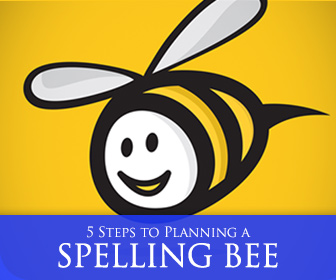The Challenge of Spelling Made Easy: 10 Creative Spelling Teaching Ideas


Because spelling rules in English can be tricky, and given that English is not a phonetic language, students will benefit from as much practice as possible with this skill. So, why not hold a spelling bee for students to make it fun? Here are some ideas for how to make it happen.

The first step in planning for a spelling bee is to create a list of words that will be used on the day of competition. The vocabulary words chosen should be ones that are relevant to students’ needs. For example, if designing a spelling bee for students in a vocational program, vocabulary should be chosen according to the students intended careers. Likewise, in an academic program, words can be selected from the Academic Word List (AWL). There are many places to access the list online. Here is one option: http://oald8.oxfordlearnersdictionaries.com/academic/
Teachers will want to plan early, exposing students to the vocabulary gradually before the day of the spelling bee. Depending on the size of the competition, at least 100 words will need to be chosen to provide a full program.
After the vocabulary words that will be used have been determined, it’s time to focus on the procedure that will be used on the day of the spelling bee. Students should become familiar with the process through “mini-bees” held in class as opportunities for practice. A procedure that works well is to use small, individual-sized whiteboards or chalkboards that can be erased easily between competitors. Spelling is often difficult to master orally, and many students will benefit from the opportunity to visually see the word instead, by putting it in writing.
Have students form a line. The teacher can read a word aloud to the student at the front of the line, and the objective is to spell the world correctly on the whiteboard. It’s a good idea to establish a time limit. If a student spells a word correctly, they go to the back of the line and continue competing. Once a student misspells a word, he or she is eliminated. The words should become increasingly difficult as time goes on.
On the day of the spelling bee, students from different classes can come together to compete in a larger contest using the words they have been practicing. If it’s an especially large group, and enough teachers are available to help out, the game will move along more quickly with multiple lines of students. When only a few contestants are left, one line can be formed with the finalists. Take breaks between rounds to build excitement, and be sure to enforce a “no-talking” rule while the competition is in-session to avoid any cheating!
Get students excited about spelling by making the spelling bee a celebratory event! Black and yellow decorations (in the spirit of the “bee”, of course) can really set a fun tone for the big day. If it’s possible to arrange to have snacks and music between rounds, even better! The goal is to create an enjoyable experience for students that will also be worthwhile in terms of developing spelling skills.
Students are usually highly motivated by rewards. Whether it’s a piece of candy or a new novel in English, participation in the spelling bee will be even more appealing if there is some kind of incentive for performing well. This can begin inside the classroom during the practice bees, but it’s especially fun to offer students a prize on the day of the formal event.
Spelling in English is often a difficult skill for students to acquire, and it’s difficult to get students to practice. A spelling bee can be the perfect incentive to motivate students to improve their spelling.